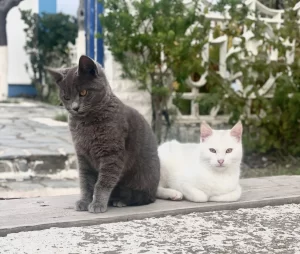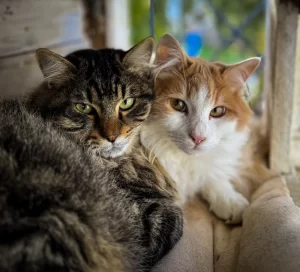Are Introverts Arrogant?
September 11, 2025
I was recently re-reading one of my all-time favorite books, Jane Austen’s Pride and Prejudice, and and Mr. Darcy’s arrogance in the first part hit me hard, just like it always does. Couldn’t he just act nicer? But then it struck me: The novel’s main misunderstanding is a brilliant example of how people misread each other—Elizabeth Bennet sees Mr. Darcy’s quiet, reserved side as pure arrogance, while his awkwardness in big social scenes comes across as arrogant indifference. It’s a conflict that’s kept readers hooked for centuries.
But it also raises a very modern question: How often do we make the same mistake today? How often do we see a quiet person in the corner of a party or a meeting and think, “They’re so arrogant” or “They think they are above everybody else?”, when the truth is something entirely different?
So: Are introverts arrogant?
The short answer is: No, not inherently. But the behaviour of an introvert can often be misread as arrogance, much like Elizabeth misread Darcy. The key is understanding the why behind the behaviour.
The Arrogance vs. Introversion Mix-Up: A Case of Mistaken Identity
Arrogance and introversion might look similar on the surface because they both involve “avoiding” people, but they come from entirely different places. Think of it this way: one is about a perceived hierarchy—‘I am better than you’—while the other is about how you choose to interact in order to preserve your energy.
- Arrogance is a personality trait rooted in a sense of superiority. An arrogant person believes they are better, smarter, or more important than others. Their behaviour is an active choice to display this perceived superiority.
- Introversion is a temperament rooted in neurology. It’s about how one gains and loses energy. Introverts recharge by spending time alone. Social interaction, especially in large groups, is draining. Their quiet behaviour is often a form of self-preservation, not a judgment on others and especially not looking down on anyone. Quite the opposite, many introverts have high levels of empath that even a phone call is carefully planned so not to distrurb the person in the other line.

Here’s a breakdown of the behaviours and the very different motivations behind them:
| Behaviour | The Arrogant Person’s Why | The Introverted Person’s Why |
|---|---|---|
| Limited talking in groups | “This conversation is beneath me.” | “I prefer to listen first.” |
| Not initiating small talk | “These people aren’t worth my time.” | “I find small talk draining and prefer deeper connections.” |
| Appearing disengaged | “I’m bored because I’m superior.” | “I’m feeling overstimulated and need a mental break.” |
| Choosing to work/be alone | “I don’t need anyone’s help.” | “I do my best work and thinking in solitude.” |
As you can see, the introvert’s actions are almost never about you. They are about managing their own internal energy levels.
The Introvert’s Inner World: It’s Not You, It’s Me (Really)
When an introvert is quiet, their internal monologue isn’t “Ugh, these people are so boring.” It’s more likely:
- “This is a lot of sensory input. I need to focus.”
- “I want to form a thoughtful response before I speak.”
- “I’m feeling a bit drained; I need to conserve energy.”
- “I’d love to have a one-on-one conversation with you later.”
Introverts often have rich, complex inner worlds. They are deep thinkers and keen observers. Their silence isn’t empty; it’s full of processing, analyzing, and reflecting.
How to Bridge the Gap
If you’re wondering how to connect with a quiet colleague or friend:
Labelling introverts as arrogant is a simplistic judgment of a complex inner process. It confuses a need for solitude with a feeling of superiority—a modern-day case of Pride and Prejudice. While any personality type can be arrogant, mistaking a quiet, reflective nature for arrogance is a mistake that causes us to miss out on some of the most thoughtful and loyal people we could ever know.
So the next time you see someone being quiet, try replacing the thought “They must be arrogant” with “They must be prefer to be alone.” That small shift in perspective can open up a world of deeper understanding and better connections. After all, as I was reminded during my re-read, first impressions are rarely the whole story.









